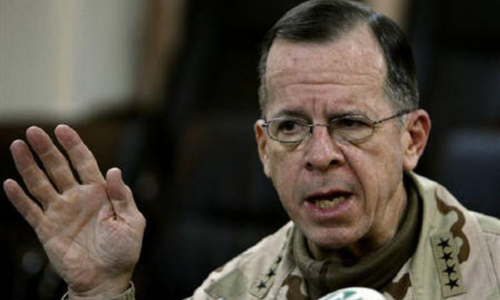Worsening ties with US could hurt Pakistan on multiple fronts

WASHINGTON: Talking about the most alarming and obvious consequence of dragging the US into Pakistan’s domestic political turmoil, a prominent financial news service has warned that Pakistan’s default risk was on the rise.
“Pakistan’s political upheaval is adding to a surge in the nation’s default risk and triggering off further losses in the nation’s bonds and currency,” said the report circulated by the Bloomberg news service among its financial clients.
The Reuters news service noted in a report that the political fight came as Pakistan faced “high inflation, dwindling foreign reserves and widening deficits”. Islamabad also “faces international pressure to prod the Taliban in neighbouring Afghanistan to meet human rights commitments while trying to limit instability there”.
Read: US ‘clearly distanced’ itself from Pakistan, says former military chief Mike Mullen
The Bloomberg report pointed out that the ongoing political turmoil had already caused the Pakistani currency to sink. Quoting an international rating agency, Moody’s, the report noted that the country’s dollar bonds have already slumped 5 per cent this year.
Financial services question Islamabad’s ability to continue reforms agreed with IMF
In a statement issued earlier this week, Moody’s said that the no-confidence motion against Prime Minister Imran Khan was “credit negative because it raises significant uncertainty over policy continuity”.
Other financial services also stressed this point, questioning the government’s ability to continue to implement the reforms it agreed to with the International Monetary Fund (IMF), which is providing financial support to the country’s ailing economy.
One of the reports suggested that this could even force the IMF to suspend its $6 billion bailout package for Pakistan. “Investors are concerned the political struggle will distract the authorities from focusing on the yawning current-account deficit,” the report added.
Some reports underlined America’s dominant role in the IMF, adding that a confrontation with Washington could not only derail Pakistan’s economic arrangement but would also have a negative impact on the country’s economic standing.
The reports warned that increased tensions with the US could further damage Pakistan at the FATF, which has already placed the country on its gray list. Some experts who spoke to various US media outlets argued that Islamabad too wanted to distance itself from Washington, but others said it was the current political government that was deliberately moving away from the US.
They pointed out that Pakistan’s military was once a top recipient of American arms and that’s why it “sought a more balanced foreign policy after becoming increasingly reliant on China for weapons”.
Published in Dawn, April 4th, 2022















































